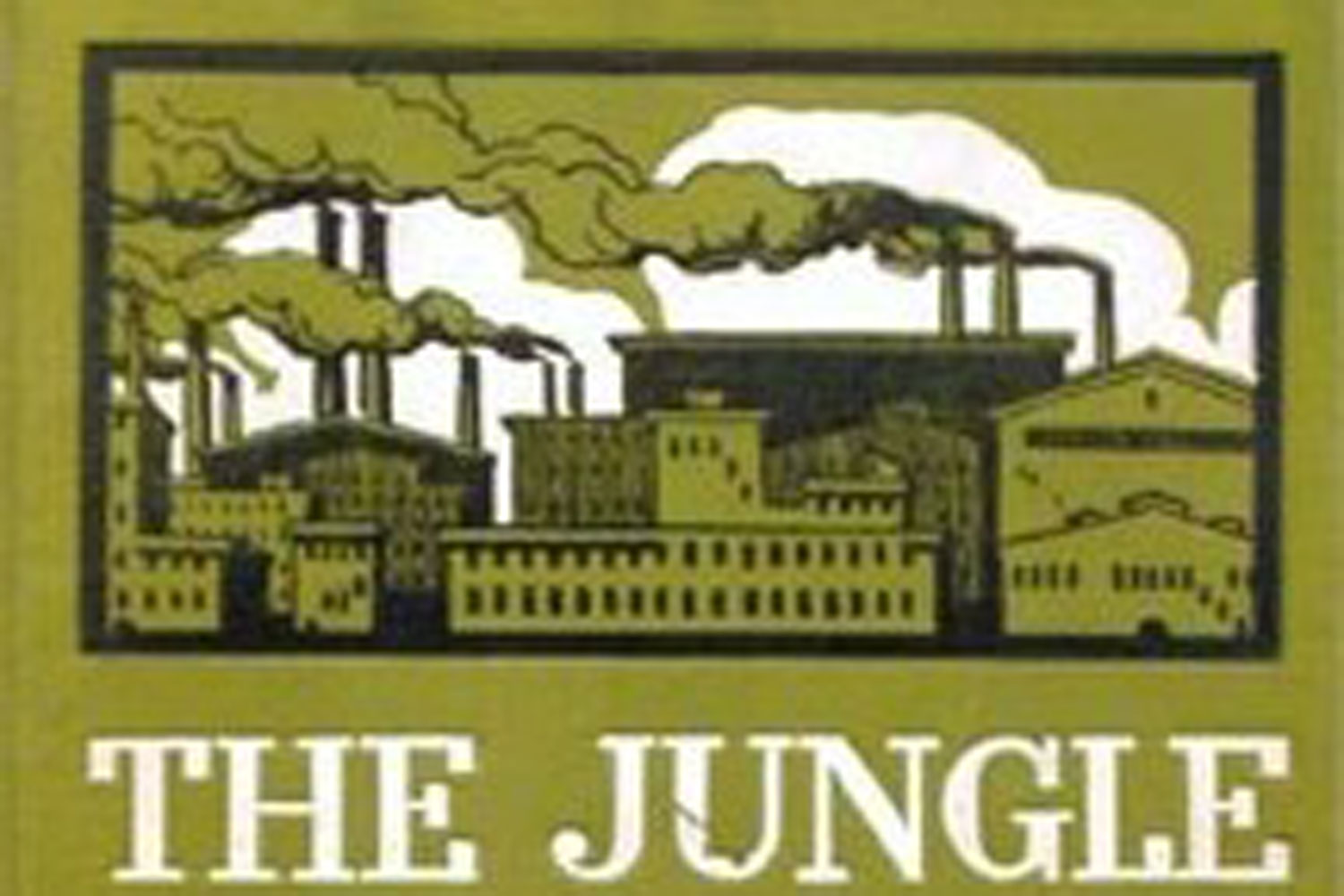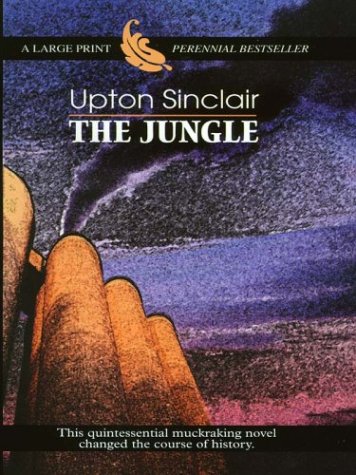
This book has been taught for a century in English and sociology classes for its vivid and.


Jurgis Rudkus, a Lithuanian immigrant, is treated like cattle himself amidst the slaughter of animals. meatpacking industry and a corrupt economic system.
"All day long the blazing midsummer sun beat down upon that square mile of abominations: upon tens of thousands of cattle crowded into pens whose wooden floors stank and steamed contagion upon bare, blistering, cinder-strewn railroad tracks and huge blocks of dingy meat factories, whose labyrinthine passages defied a breath of fresh air to penetrate them and there are not merely rivers of hot blood and carloads of moist flesh, and rendering-vats and soup cauldrons, glue-factories and fertilizer tanks, that smelt like the craters of hell-there are also tons of garbage festering in the sun, and the greasy laundry of the workers hung out to dry and dining rooms littered with food black with flies, and toilet rooms that are open sewers. The Jungle (1906) is a novel by Upton Sinclair which exposed the horrible conditions of the U.S. As they settle into the Packingtown neighborhood of Chicago, they find their dreams are unlikely to be realized. 
Like thousands of others, the Rudkus family has emigrated from Lithuania to America in search of a better life. "Relentless, remorseless, it was all his protests, his screams, were nothing to it-it did its cruel will with him, as if his wishes, his feelings, had simply no existence at all it cut his throat and watched him gasp out his life." (Chapter 3) The Jungle Upton Sinclair (1878 - 1968) It is the end of the 19th century.







 0 kommentar(er)
0 kommentar(er)
